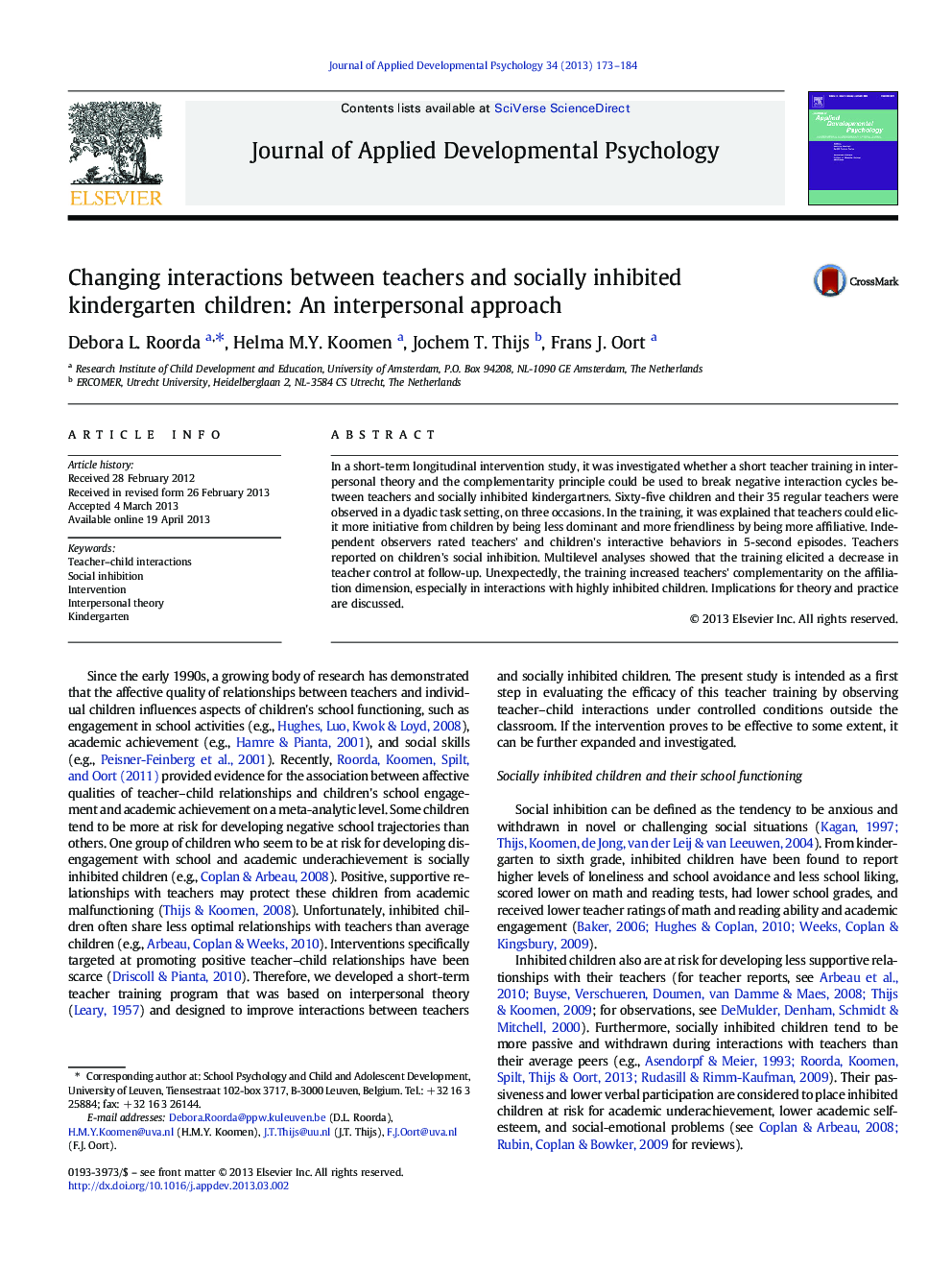| Article ID | Journal | Published Year | Pages | File Type |
|---|---|---|---|---|
| 359663 | Journal of Applied Developmental Psychology | 2013 | 12 Pages |
•Interventions focused at improving teacher–child relationships have been scarce.•We examined the effectiveness of a teacher training based on interpersonal theory.•The training elicited a decrease in teacher control at follow-up.•The training increased teachers' complementarity tendencies on affiliation.•No intervention effects were found for children's interactive behaviors.
In a short-term longitudinal intervention study, it was investigated whether a short teacher training in interpersonal theory and the complementarity principle could be used to break negative interaction cycles between teachers and socially inhibited kindergartners. Sixty-five children and their 35 regular teachers were observed in a dyadic task setting, on three occasions. In the training, it was explained that teachers could elicit more initiative from children by being less dominant and more friendliness by being more affiliative. Independent observers rated teachers' and children's interactive behaviors in 5-second episodes. Teachers reported on children's social inhibition. Multilevel analyses showed that the training elicited a decrease in teacher control at follow-up. Unexpectedly, the training increased teachers' complementarity on the affiliation dimension, especially in interactions with highly inhibited children. Implications for theory and practice are discussed.
